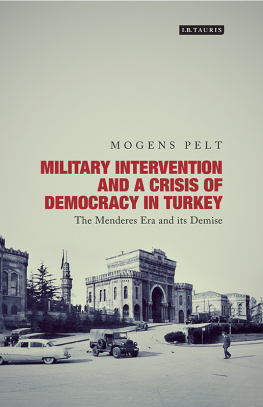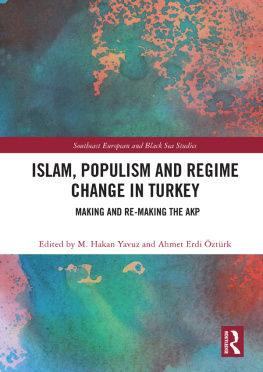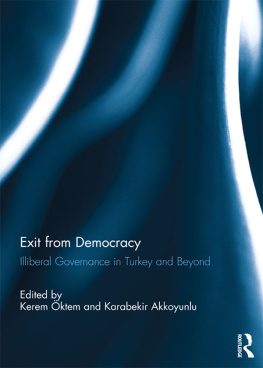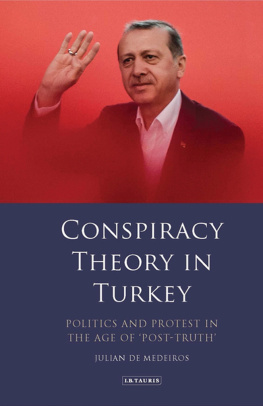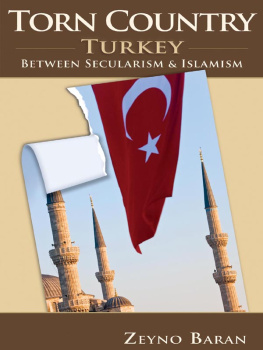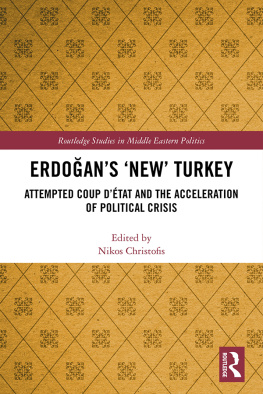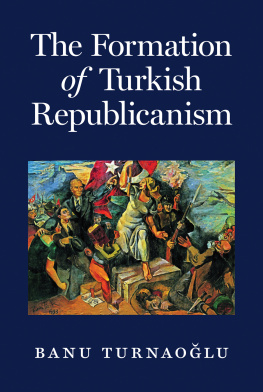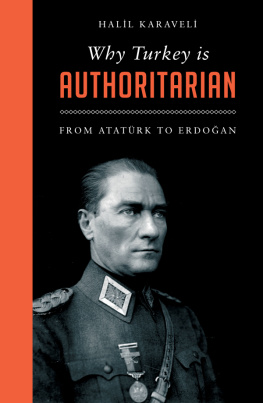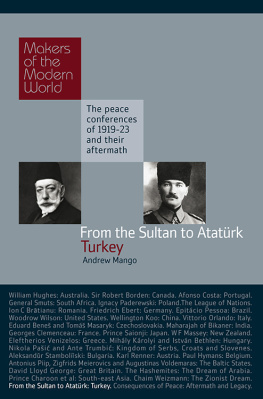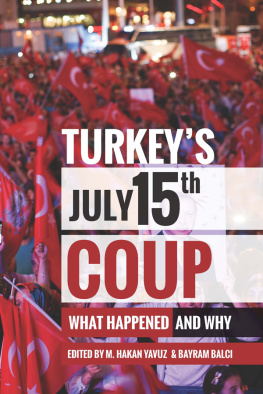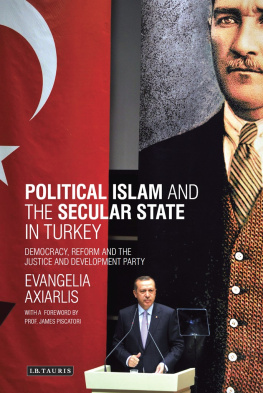Mogens Pelt - Military Intervention and a Crisis of Democracy in Turkey: The Menderes Era and its Demise
Here you can read online Mogens Pelt - Military Intervention and a Crisis of Democracy in Turkey: The Menderes Era and its Demise full text of the book (entire story) in english for free. Download pdf and epub, get meaning, cover and reviews about this ebook. City: London, year: 2014, publisher: I.B. Tauris, genre: Science / Politics. Description of the work, (preface) as well as reviews are available. Best literature library LitArk.com created for fans of good reading and offers a wide selection of genres:
Romance novel
Science fiction
Adventure
Detective
Science
History
Home and family
Prose
Art
Politics
Computer
Non-fiction
Religion
Business
Children
Humor
Choose a favorite category and find really read worthwhile books. Enjoy immersion in the world of imagination, feel the emotions of the characters or learn something new for yourself, make an fascinating discovery.
- Book:Military Intervention and a Crisis of Democracy in Turkey: The Menderes Era and its Demise
- Author:
- Publisher:I.B. Tauris
- Genre:
- Year:2014
- City:London
- Rating:3 / 5
- Favourites:Add to favourites
- Your mark:
Military Intervention and a Crisis of Democracy in Turkey: The Menderes Era and its Demise: summary, description and annotation
We offer to read an annotation, description, summary or preface (depends on what the author of the book "Military Intervention and a Crisis of Democracy in Turkey: The Menderes Era and its Demise" wrote himself). If you haven't found the necessary information about the book — write in the comments, we will try to find it.
Adnan Menderes election to power in 1950 signalled a new epoch in the history of modern Turkey. For the first time a democratic government ruled the country, taking over Kemal Ataturks political heirs, the Peoples Republican Party (CHP), and challenging the Kemalist elites monopoly on the control of state institutions and society itself. However, this period was short-lived. In 1960, Turkeys army staged a coup detat and Menderes was hanged the following year. Here, Mogens Pelt beings by examining the era of the rule of the Democratic Party, and what led to its downfall. Among the chief accusations raised against Menderes by the army was that he had undermined the principles of the founder of modern Turkey, Ataturk, and that he had exploited religion for political purposes. Military Intervention and a Crisis Democracy in Turkey furthermore, and crucially, examines the legacy of the military intervention that brought this era of democratic rule to an end.
Although the armed forces officially returned power to the civilians in 1961, this intervention - indeed, this crisis of democracy - allowed the military to become a major player in Turkeys political process, weakening the role of elected politicians. The officer corps claimed that the army was the legal guardian of Kemalism, and that it had the right and duty to intervene again, if the circumstances proscribed it and when it deemed that the values of Ataturk were threatened. Indeed, these were precisely that ground on which the armed forces justified its coup detats of 1971 and 1980. This unique exploration of the Menderes period sheds new light on the shaping of post-war Turkey and will be vital for those researching the Turkish Republic, and the influence of the military in its destiny.
Mogens Pelt: author's other books
Who wrote Military Intervention and a Crisis of Democracy in Turkey: The Menderes Era and its Demise? Find out the surname, the name of the author of the book and a list of all author's works by series.

